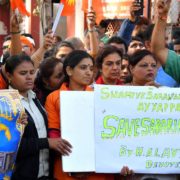«I hope that this time of danger will free us from operating on automatic pilot».[1]
Clearly, the Pope is referring to the pandemic. His words are tough and his tone a little severe. But these words taken from his letter to popular movements reverberate more widely. Looking ahead to «life after the pandemic»[2] the Pope’s hope is that a culture of attentiveness emerges especially in our charitable projects, which are already great signs of responsiveness. But what are we to be attentive to in our social action? What automation should we overcome?
As covid-19 has pressed pause on much human activity, the value of social charities has become ever more evident. It is as though societal distancing, with people across the globe drawing inwards into a domestic cocoon, has exposed the goodness of charitable initiatives that run like veins through our social body. Religious charities play a central role in this welfare provision but they seem to perplex as well as provide. Indeed, the religious aspect of these projects is often the obstacle.
Perhaps it is timely to look at the religious dimension of these charities after researchers behind a joint project by the Universities of Sheffield and Leeds in the UK propose a new clause for all organisations, religious and secular, that are part of the fight against modern slavery. In their report Faith responses to modern slavery they make the powerful recommendation that there be the «Implementation of the non-proselytisation clause»[3] in standards for work and practice. While the report’s focus is on charities supporting modern slavery survivors, this suggested clause raises open questions about the ways in which faith is operative within social action projects.
How religious are religious organisations?
The faith aspect of religious social charities is worthy of attention because it is often oversimplified or completely overlooked. In a seeming contradiction, an oversimplification of the role of faith is partly explainable by a broad diversification in religious practice and belonging. This is evidenced in a rush to the bottom towards the lowest common denominator that homogenises faith based charities as though each organisation is religious in the same way.
Reflecting on the role of faith in these charities requires the culture of attentiveness to which Pope Francis aspires. This serves two purposes. Firstly, it benefits civil society in being conversant about religious bodies supporting welfare. Secondly, it benefits faith based charities themselves in being conversant as regards to their organisational identity.
Is the term faith based charity not a “shorthand” as McCabe and Craig argue[4] for a complex organisational identity? Perhaps the phrase confuses rather than confronts the reality of these diversely religious organisations. Sider and Unruh broaden the vocabulary by introducing other terms that act as a scale of measure from a “Faith-Permeated”, “Faith-Centered”, “Faith-Affiliated”, to a “Faith-Background” organisation that cooperate with “Faith-Secular” and “Secular” organisations.[5] These suggested titles help us to avoid simplistic descriptions of varied organisations, offering a means of navigating rather than negating complexity.
Diversity is found not only in the religious tradition to which an organisation associates itself but in the lived practice of faith within the organisation. A broader picture is revealed through everyday practice on the ground where the religious dimension is also to be evidenced. The informal life of an institution is informative if we are attentive to it.
Religious organisations and secularity
Adapting our language must extend to notions of secularity too. If these charity organisations are no longer to be perceived as fortresses, organisational reflection is necessary as part of a frank discussion about what precisely is religiously motivated charity.
Lee goes further to suggest we speak of a “religious landscape” that is also attentive to «traditionally religious, alternatively religious, and non-religious cultures as well as to its areligious or post-religious features in which all of these phenomena are marginal to some degree».[6] Lee’s perception is that the «secular is viewed as a context in which religion exists and is enacted. There, the secular is the “everything but” that surrounds and interacts with religion».[7] Religiously motivated charity exists within secularity and, therefore, narratives around these projects must include the voices and experiences of the none religious and religious others.
The religious actor within faith based charities
Defining religious social organisations is also difficult at the individual level because institutional identity is performative. Lichterman traces the historical treatment of the religious actor beginning with Émile Durkheim and Max Weber who in different ways both «imply an actor who carries religion consistently as either a character type or internalized group norm».[8] Any staff member or volunteer here is deemed a religious actor: he or she is regarded as religious – and permanently religious.
On the one hand, generalisations are formed about these institutions in which staff are regarded as consistently religious. On the other hand, where organisations rely «upon a fixed sense of identity»,[9] the fluidity of identity and the performance of that identity is not considered. Reality, however, is much more mixed.
A study of food banks in Britain, supporting people who experience food poverty, highlights how this variation is revealed in practice as researchers found that organisations vary from the morning to the afternoon depending on the volunteers present. Emphasising political rather than religious identity they remark that:
«the specific political sensibility claimed and performed by volunteers cannot easily be read off from an individual’s self-identification, be that a religious (one’s denominational or theological position) or political (broad affiliation and/or party political membership) identity».[10]
Admitting flexibility causes some to fear for organisational identity, but a more honest approach asks how observing the lived experience of these institutions might improve practice.
Proselytising
It is appropriate that the proposed clause is applicable to secular as well as religious social charities because, as this discussion has attempted to demonstrate, religion is operative within secularity. Secular and religious social welfare is offered by individuals who might also belong to a faith tradition. Of course, proselytising seems more of a risk within institutions that are religiously affiliated but the clause admits the possibility of proselytising in secular settings too. Such a view is only conceivable if religious and secular charity organisations are finally recognised as functioning within society rather than representing themselves or being represented as exempt from the complexity of the “outside world”.
Ryan Service è sacerdote diocesano a Birmingham, Gran Bretagna. Ha studiato Dottrina sociale della Chiesa ed Etica pubblica a Roma presso la Pontificia Università Gregoriana.
[1] Francesco, Lettera del santo padre al movimenti popolari, Vaticano, 12 aprile 2020.
[2] Ibidem.
[3] H. Lewis, G. Lonergan, R. Murray, E. Tomalin, L. Waite, Faith responses to modern slavery, 24 gennaio2020, 25.
[4] A. McCabe e G. Craig. Ten Years Below the Radar: Reflections on Community and Voluntary Action 2008-2018, Third Sector Research Centre Working Paper 143, University of Birmingham, Birmingham 2018, 15.
[5] R. J. Sider e H. R.Unruh. “Typology of Religious Characteristics of Social Service and Educational Organizations and Programs”, nelNonprofit and Voluntary Sector Quarterly 33(1):109-34, 2004, 112.
[6] L. Lee.Recognizing the Non-Religious: Reimagining the Secular. Oxford University Press, Oxford 2017, 47.
[7] Lee, 50.
[8] P. Lichterman. “Religion in Public Action: From Actors to Settings”nelSociological Theory 30(1):15–36, 2012, 15.
[9] Lichterman, 22.
[10] A. Williams, P. Cloke, J. May e M. Goodwin. “Contested Space: The Contradictory Political Dynamics of Food Banking in the UK”nelEnvironment and Planning A: Economy and Space 48(11):2291–2316,2016, 13.






